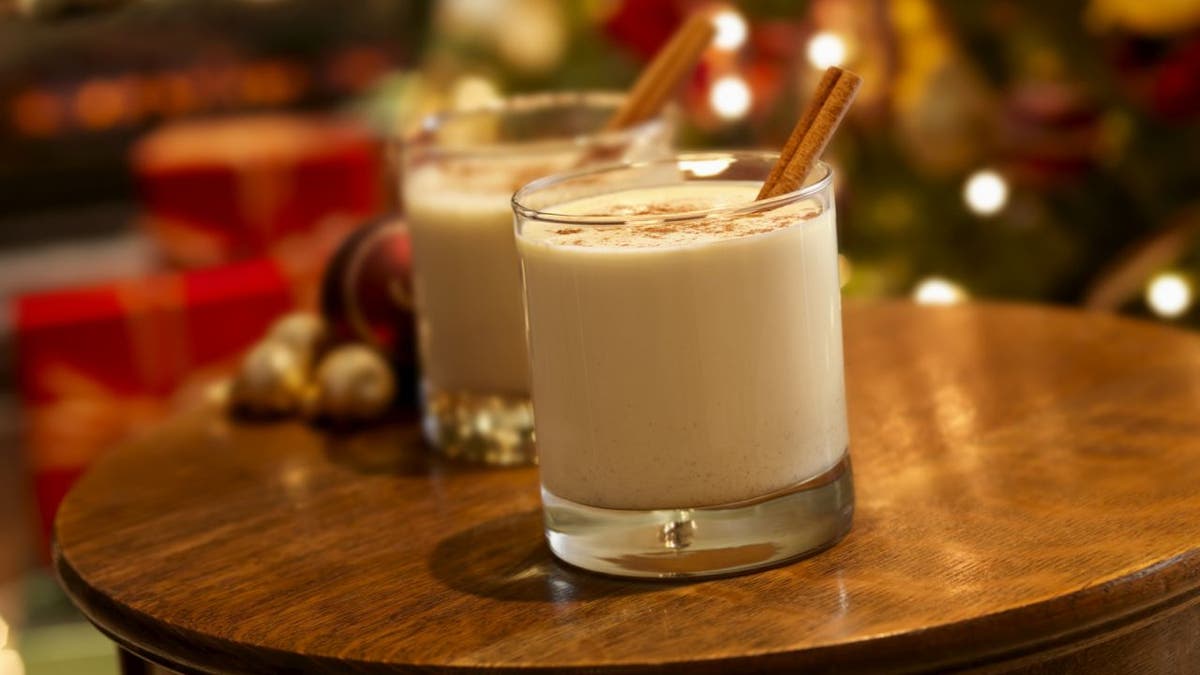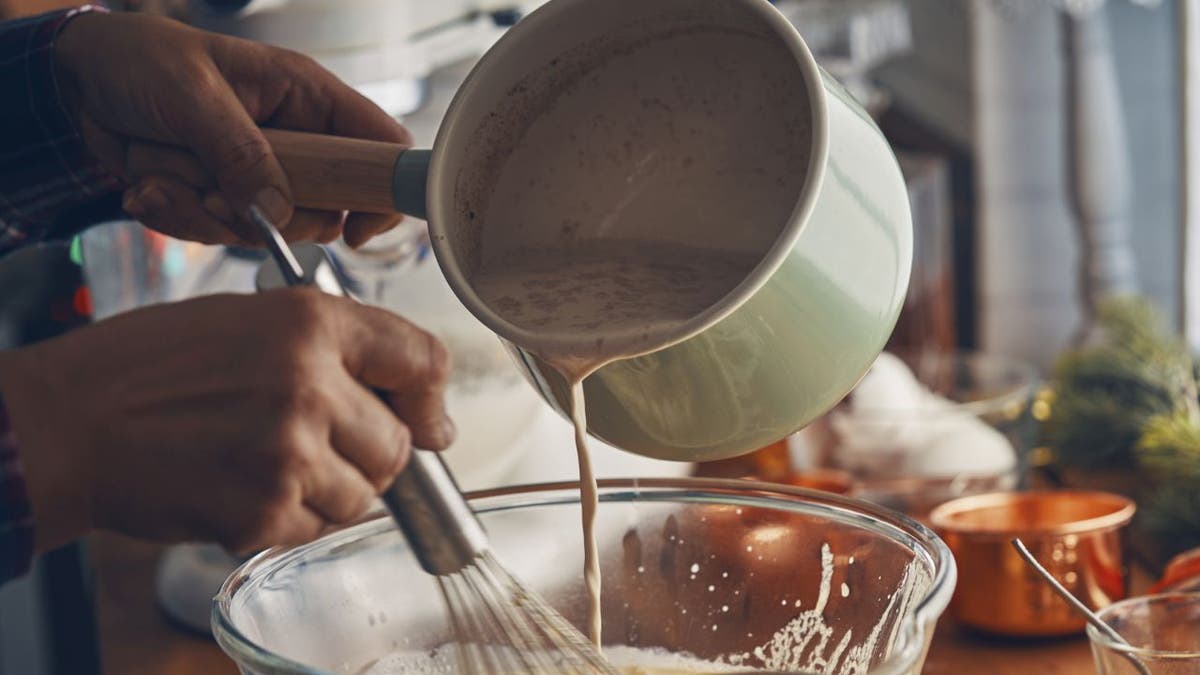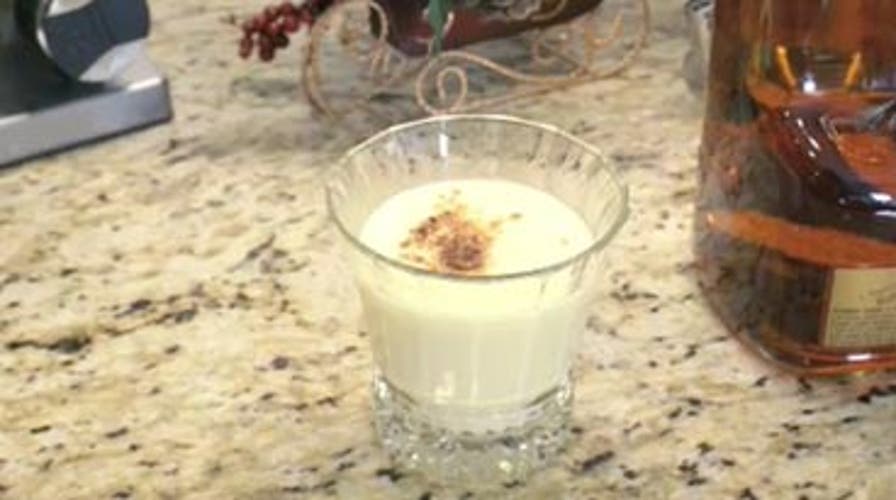There’s no denying that the month of December is peak eggnog time.
The sweet and spicy beverage has been a holiday staple for hundreds of years, but not everyone knows what it’s made out of, where it comes from or why we drink it near each year’s end.
That’s not the case with "eggspert" Jim Chakeres, an executive vice president at the Ohio Poultry Association, who knows the history behind the seasonal drink.
9 DOWNRIGHT DELICIOUS EGGNOG DESSERT RECIPES TO BRIGHTEN UP YOUR HOLIDAY
"Eggnog, which is actually a drinkable form of custard, originated in medieval Britain where locals created a hot, creamy ale-like drink," Chakeres told Fox News. "The name, ‘Eggnog,’ is a combination of ‘noggin,’ a wooden cup, and ‘grog,’ a strong beer."

Eggnog is a dairy-based beverage that's traditionally made with milk, cream, sugar, egg yolks and whipped egg whites. It can be served with and without alcohol. (iStock)
He continued, "Early colonists traveling to America helped the drink become popular during the holidays as locally farmed eggs and milk, in addition to locally made rum and whisky was readily available."
Americans went on to create eggnog recipes of their own, including George and Martha Washington, who famously enjoyed eggnog with rye whiskey, Jamaican rum and sherry, according to historical records.
EGGNOG CHAI COOKIES WITH EGGNOG BUTTERCREAM FROSTING
Variations of eggnog exist throughout the rest of the world under different names and ingredient lists, but the creamy texture and sweet flavor remain the same.
For commercial eggnog manufacturers, the drink’s egg yolk content must be at least 1%, according to records from the U.S. Food and Drug Administration.

Some eggnog fans like to make their own recipes during the holidays. (iStock)
The egg yolk content in homemade eggnog concoctions is subject to the beverage mixer, but the FDA recommends it be made from a cooked egg base, so holiday celebrators can avoid foodborne illnesses like salmonella.
The United Egg Producer Farmer-Members reports that the FDA is in favor of eggnog recipes that require milk and egg mixtures to be gently heated up to an internal temperature of 160 degrees Fahrenheit.
"The cooking will destroy any bacteria that might be present. At this temperature, the mixture will firmly coat a metal spoon. But please don’t lick the spoon if the custard is not fully cooked," the egg federation wrote on its website, Egg Safety Center. "After cooking, chill the mixture before adding the rest of the milk and other ingredients."
CLICK HERE TO GET THE FOX NEWS APP
If homemade eggnog isn’t something that sounds appealing to you, there are countless dairy and egg manufacturers who have packaged their tried and true recipes. All you have to do is stop by your favorite grocery store and serve when you get home.









































